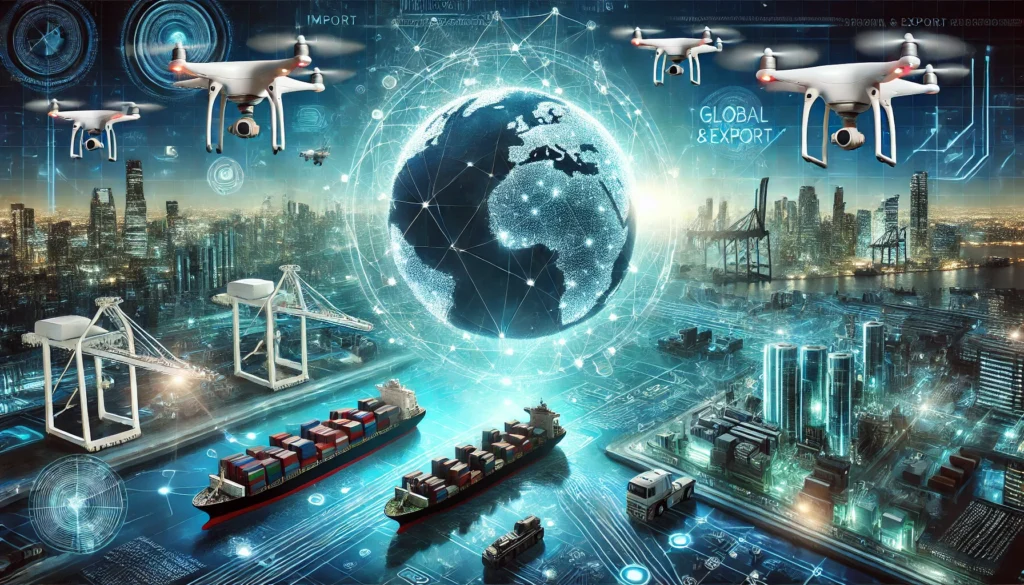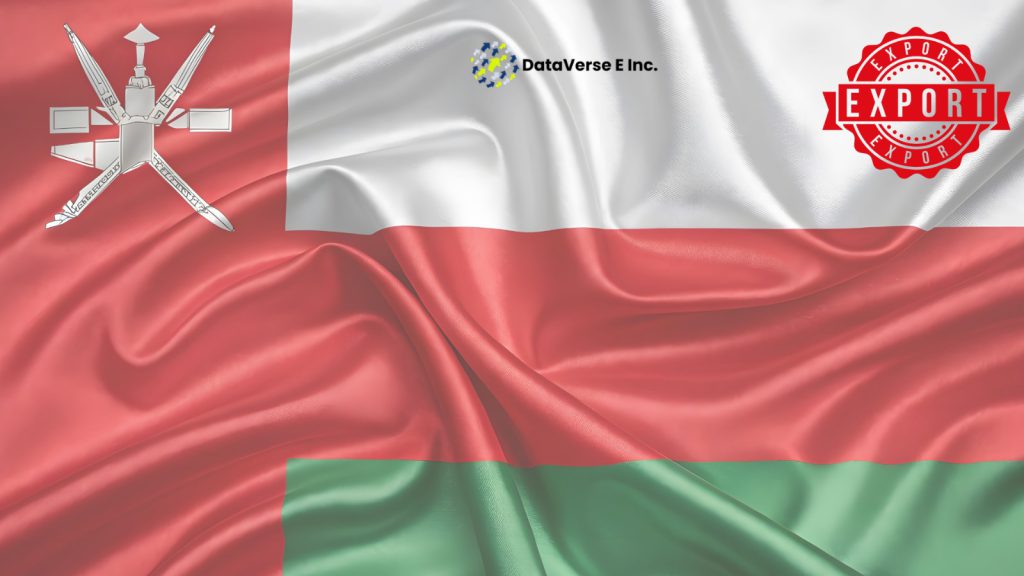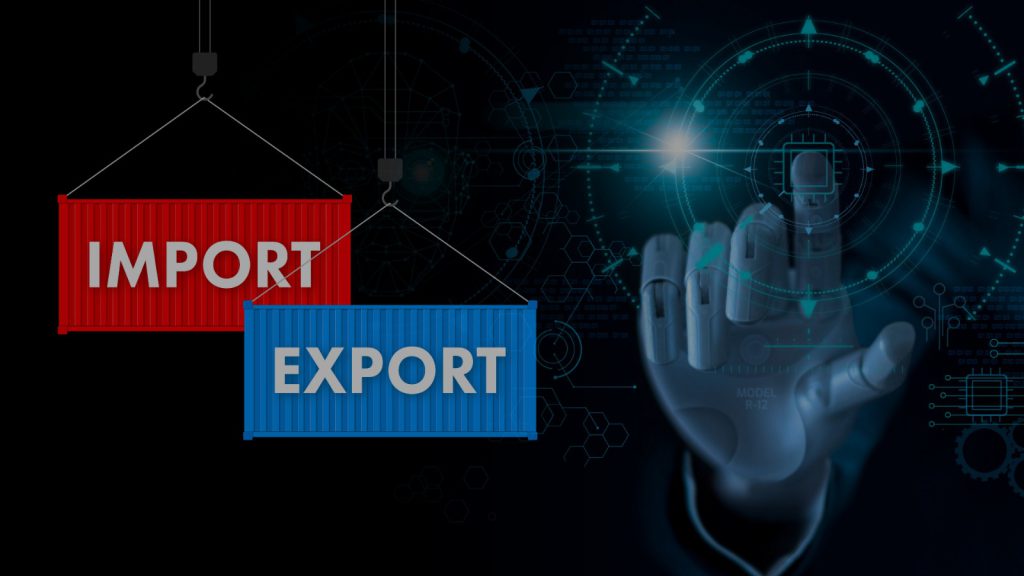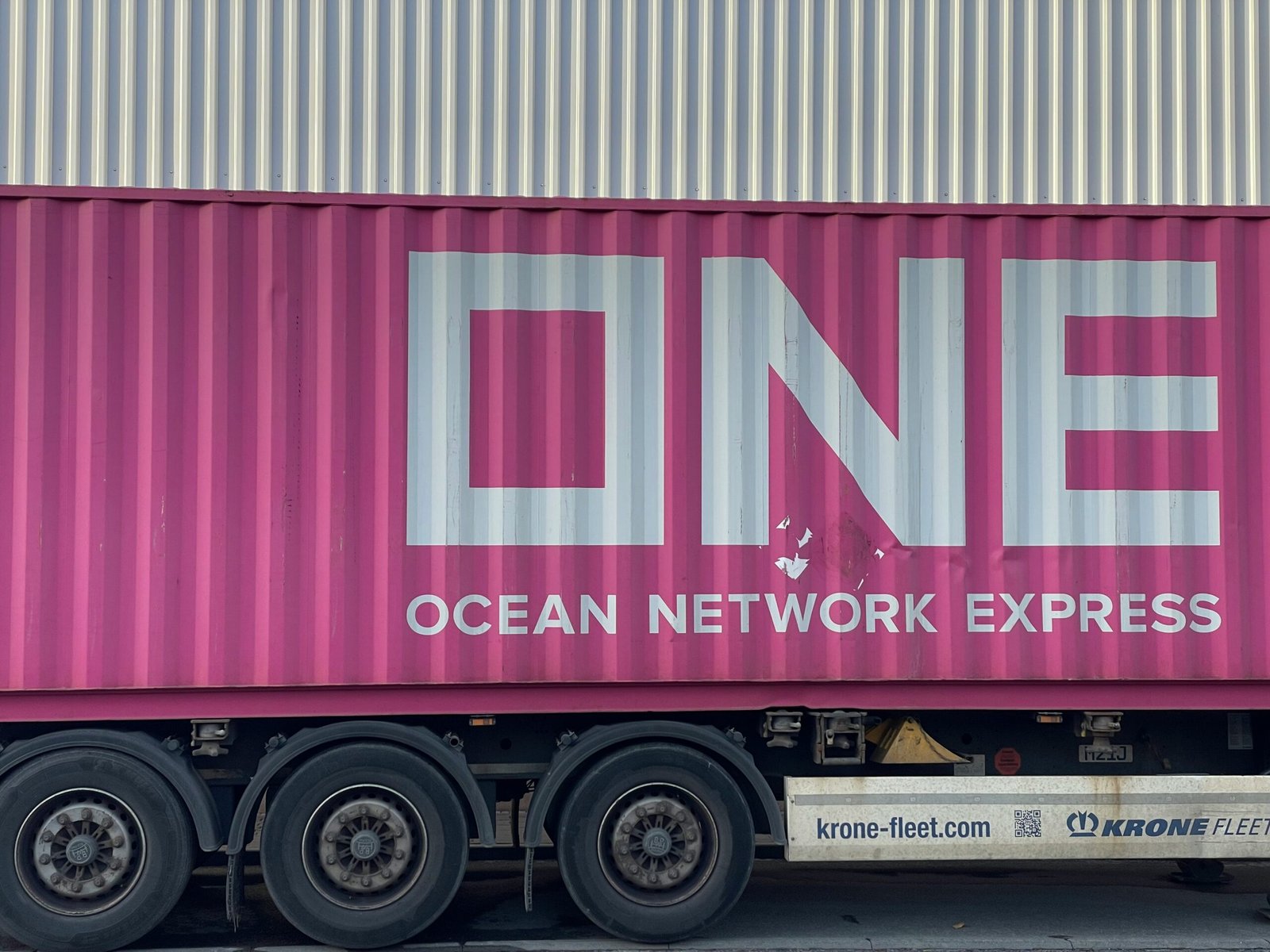Introduction to the Digital Transformation of Import and Export
The import and export industry has historically relied on traditional methods that, while effective, often presented various challenges.
These processes typically involved extensive paperwork, manual calculations, in-person negotiations, and a labyrinth of logistics management.
Managing these operations frequently resulted in inefficiencies, increased costs, and reduced competitiveness in a fast-paced global market.
However, the landscape began to shift with the advent of digital technologies, illuminating a path toward modernization that addressed many of these challenges.
Digital transformation refers to the integration of digital technology into all areas of business, fundamentally changing how companies operate and deliver value to customers.
In the realm of international trade, the emergence of digital tools has revolutionized the import and export processes.
Technologies such as blockchain, artificial intelligence, and big data analytics have enhanced transparency, streamlined operations, and fostered a more interconnected supply chain.
This transformation not only makes it easier for businesses to navigate global trade but also ensures compliance with regulations and improves overall efficiency.
The necessity for modernization within the import and export sector is evident.
Compounding factors such as globalization and evolving consumer demands require businesses to respond swiftly and effectively. Companies must adapt to new market dynamics by leveraging digital tools to simplify complex trade processes.
This shift not only empowers businesses to enhance their operational capabilities but also supports them in maintaining a competitive edge in a rapidly changing landscape.
As we delve deeper into the current trends and innovations shaping the future of import and export, it becomes clear that embracing digital transformation is no longer optional but essential for survival in the global trade arena.
The Role of E-Commerce in Global Trade Flows
The advent of e-commerce has fundamentally transformed the landscape of global trade, significantly impacting import and export activities.
Online marketplaces such as Amazon, Alibaba, and eBay have proliferated, offering platforms that enable businesses of all sizes to engage in international trade more effectively.
These platforms provide a streamlined, user-friendly interface for both buyers and sellers, facilitating the smooth flow of goods across borders.
As a result, e-commerce has made it easier than ever for companies to access new markets and reach customers around the world.
One of the key advantages of e-commerce in the context of import and export is the democratization of trade.
Small and medium-sized enterprises (SMEs) previously faced numerous barriers to entry in the global market, such as limited resources, high operational costs, and lack of market visibility.
However, e-commerce has considerably lowered these barriers.
Businesses can now leverage digital tools to set up an online presence, advertise their products, and connect with international buyers without needing a physical storefront or extensive networks.
Furthermore, e-commerce has enhanced transparency in trade, allowing buyers to easily compare prices, assess product quality, and read reviews before making a purchase.
This increase in access to information benefits consumers while fostering healthy competition among suppliers. Logistics and payment solutions have also evolved to keep pace with the expansion of e-commerce.
Enhanced shipping options and streamlined payment processes have simplified the overall import and export workflow, making cross-border transactions faster and more secure.
In conclusion, the intersection of e-commerce and global trade flows is reshaping the import and export landscape.
As businesses continue to embrace digital transformation, the growth of online platforms is likely to play an increasingly vital role in fostering international trade relationships, particularly for SMEs seeking to establish a competitive presence in the global market.
Supply Chain Optimization through Technology
The landscape of supply chain management is undergoing significant transformations, largely driven by technological advancements.
To remain competitive in the global market, businesses involved in import and export must leverage these innovations to optimize their supply chains.
One of the most impactful advancements has been in inventory management systems.
Modern solutions provide real-time visibility into stock levels, enabling companies to effectively monitor their products and avoid overstocking or stockouts.
This level of insight is crucial for businesses that rely on timely inventory to meet customer demands.
Logistics software also plays a pivotal role in enhancing supply chain efficiency.
This technology streamlines the movement of goods by automating processes such as route planning, shipment tracking, and carrier selection.
By utilizing data analytics, companies can identify bottlenecks and inefficiencies in their logistics operations, ultimately leading to cost savings and improved delivery times.
Such efficiencies are essential in the import and export sector, where timely deliveries can significantly impact customer satisfaction and retention.
Furthermore, the integration of Artificial Intelligence (AI) in supply chain operations has emerged as a game changer.
AI algorithms can predict demand trends more accurately, allowing businesses to adjust their inventory levels accordingly.
By analyzing historical data and market conditions, these systems provide insights that facilitate informed decision-making.
This capability not only reduces excess inventory costs but also enhances the ability of companies to respond to market fluctuations swiftly.
In conclusion, the adoption of advanced technologies in supply chain management is not merely a trend but a necessity for the import and export industry.
By optimizing inventory management, logistics operations, and utilizing AI-driven insights, businesses can significantly enhance efficiency, reduce costs, and improve service delivery, positioning themselves favorably in an increasingly competitive global marketplace.
Blockchain Technology and Its Impact on Import and Export
Blockchain technology has emerged as a transformative force in the import and export sector, offering enhanced transparency, security, and efficiency in global trade transactions.
This decentralized digital ledger system records transactions across multiple computers, ensuring that the information is immutable and accessible to all authorized parties.
One of the primary advantages of blockchain in import and export operations is its ability to provide a transparent record of transactions.
Each stage of a supply chain can be documented and verified, thus enabling businesses to track their goods in real-time.
This level of traceability is invaluable, especially in industries that require stringent compliance with regulations and standards.
Moreover, the security features of blockchain significantly mitigate the risk of fraud. Traditional trade systems often rely on third parties to validate transactions, which can introduce vulnerabilities.
However, with blockchain, each transaction is cryptographically secured and linked to previous entries, making alterations exceedingly difficult.
This reduction in fraud risk is particularly crucial for international trade, where the value of goods can be substantial and misrepresentation can lead to significant financial losses.
Several companies have already begun to harness the power of blockchain to revolutionize their import and export processes.
For example, Maersk, in collaboration with IBM, launched TradeLens, a blockchain-based platform that allows participants in the shipping supply chain to share information securely.
This initiative has streamlined documentation processes, reduced delays, and improved visibility across the entire supply chain.
Similarly, companies like De Beers have employed blockchain to trace the provenance of diamonds, ensuring that they are conflict-free and ethically sourced.
Such applications illustrate the growing significance of blockchain in enabling more efficient and trustworthy import and export activities.
Digital Documentation and Compliance Challenges
In today’s digital era, the import and export industry is undergoing a significant transformation, particularly with the transition from traditional paper-based documentation to digital formats.
This shift promises enhanced efficiency, reduced errors, and quicker turnaround times for international transactions.
However, it also introduces an array of challenges related to compliance and regulatory requirements that businesses must navigate to operate successfully on a global scale.
The complexities of international trade necessitate strict adherence to varied compliance standards set by different countries.
As businesses embrace digital documentation, they are often confronted with issues such as data integrity, security, and ensuring that digital records meet the regulatory norms of all respective jurisdictions involved in the import and export processes.
Non-compliance can lead to severe penalties, including fines and delays in the movement of goods, undermining the efficiency that digital solutions aim to offer.
To address these challenges, several tools and platforms have emerged that facilitate streamlined documentation processes while ensuring compliance.
Technologies such as blockchain are being integrated into import and export operations to enhance transparency and traceability of transactions, securing the authenticity of digital documents.
Additionally, cloud-based solutions provide businesses with the necessary tools to manage their documentation efficiently, making it easier to access, share, and store important records securely.
Furthermore, the implementation of electronic data interchange (EDI) systems is gaining traction as these platforms allow for the automated exchange of documents, reducing the time spent on manual processing.
With these advancements, businesses are better equipped to manage compliance challenges, thus maximizing their operational efficiency in a landscape that increasingly relies on digital solutions for import and export activities.
The Impact of Artificial Intelligence on Decision-Making
In today’s digital era, the import and export sectors are experiencing transformative changes driven by advancements in Artificial Intelligence (AI).
One of the most significant areas where AI is making a considerable impact is in the decision-making processes within these businesses.
Companies engaged in import and export are increasingly leveraging AI technologies to enhance their strategic planning and operational efficiency.
Predictive analytics is one of the key AI applications transforming how firms analyze market trends and consumer behavior.
By utilizing algorithms that process vast amounts of data, businesses can forecast future demand with remarkable accuracy.
This allows importers and exporters to optimize their inventory levels, ensuring they meet consumer demand without overstocking or understocking.
In a world where logistics and inventory management are critical, the ability to make data-driven predictions significantly enhances competitiveness.

Moreover, demand forecasting powered by AI provides nuanced insights into customer preferences and buying patterns.
By analyzing historical data and current market dynamics, AI tools offer valuable recommendations that help businesses adapt their strategies to changing consumer needs.
This adaptability is particularly crucial in the import and export landscape, where market conditions can fluctuate dramatically due to various external factors such as geopolitical changes or economic shifts.
Another critical advancement is the utilization of AI for customer insights.
By analyzing customer interactions and feedback, AI systems can generate comprehensive profiles that help companies tailor their services and offerings.
This results in improved customer satisfaction and loyalty, leading to enhanced business performance.
Import and export businesses that understand and capitalize on AI’s potential stand to gain a significant advantage in decision-making effectiveness.
Overall, the integration of Artificial Intelligence into decision-making processes is reshaping how companies approach import and export activities, paving the way for smarter, data-driven strategies that elevate operational success.
Sustainability and Corporate Responsibility in Digital Trade
As businesses navigate the complexities of the digital era, the import and export industry faces increasing pressure to embrace sustainability and corporate responsibility.
In an economy that is increasingly defined by technology, companies are not only expected to provide efficient services but also to take significant steps towards minimizing their environmental impact.
This shift is being propelled by a growing consumer demand for ethical practices and sustainable sourcing. In this context, digital solutions are playing a vital role in helping businesses achieve these objectives.
Technological advancements have made it easier for companies to monitor their supply chains.
Utilizing data analytics and Internet of Things (IoT) technologies, firms can acquire real-time insights into their operations, enabling them to track carbon emissions throughout the import and export processes more effectively.
By analyzing this data, businesses can identify areas of inefficiency and implement strategies to reduce their carbon footprint.
For example, optimizing transportation routes and selecting more eco-friendly shipping methods are becoming common practices in the pursuit of sustainability.
Furthermore, digital platforms enable businesses to enhance transparency in their sourcing practices.
Consumers are increasingly prioritizing companies that demonstrate a commitment to ethical sourcing, thereby holding businesses accountable for their choices.
Blockchain technology, for instance, can provide a transparent ledger of goods, allowing consumers to trace the origins of products and verify that they meet ethical standards.
As such, businesses that invest in technology to improve transparency in their supply chains can build trust and loyalty among environmentally conscious consumers.
In conclusion, as the import and export sector undergoes digital transformation, sustainability and corporate responsibility are becoming paramount.
Companies that leverage technology to track their environmental impact and ensure ethical practices will not only comply with regulatory demands but also align with consumer expectations.
As a result, the embrace of sustainable practices will likely provide a competitive advantage in an increasingly conscientious marketplace.
Cybersecurity in the Digital Era of Trade
In the rapidly evolving landscape of international trade, the significance of cybersecurity cannot be overstated.
As businesses increasingly rely on digital platforms for import and export activities, they also become more susceptible to various cyber threats.
These threats can range from data breaches to sophisticated hacking attempts that compromise sensitive information integral to trade operations.
The implications of such vulnerabilities are profound, affecting not only the individual companies involved but also the broader economic stability and trust in the import and export sector.
Moreover, the global nature of trade in the digital era means that cybersecurity threats can originate from any part of the world, making it paramount for businesses engaged in import and export to adopt comprehensive security strategies.
The sensitive data exchanged during transactions, including shipping information, payment details, and personal credentials, requires robust protection to prevent unauthorized access and cyberattacks.
Failure to secure this data can lead to financial loss, reputational damage, and legal repercussions, all of which can severely impact a company’s ability to operate effectively in global markets.
In this context, it is crucial for companies involved in import and export to implement advanced cybersecurity measures.
This includes investing in encryption technologies, conducting regular security audits, and providing training to employees on identifying potential threats.
Furthermore, adopting best practices such as using strong passwords, enabling two-factor authentication, and keeping software up to date are essential steps that can enhance overall security preparedness.
As the digital space for international trade continues to expand, prioritizing cybersecurity will not only safeguard sensitive information but also foster trust and reliability in the import and export process.
Future Trends in Import and Export Technology
The landscape of global trade is rapidly evolving, driven by advancements in technology that are set to redefine the import and export sector.
As businesses navigate this digital era, several key technologies are emerging, promising to enhance efficiency and streamline operations in international trade.
One significant trend is the implementation of 5G connectivity. With faster data transmission speeds and more reliable connectivity, 5G has the potential to transform supply chain management in import and export activities.
It will facilitate real-time tracking of goods, enabling companies to monitor shipments more closely and respond swiftly to any disruptions.
Another pivotal technology is the Internet of Things (IoT). This network of connected devices allows for seamless communication between various stakeholders in the import and export process.
IoT sensors can monitor cargo conditions, such as temperature and humidity, ensuring that goods remain in optimal condition throughout their journey.
This capability will be particularly crucial for industries dealing with perishable products, improving both quality assurance and operational efficiency in import and export practices.
Additionally, machine learning is poised to revolutionize the decision-making processes associated with global trade.
By analyzing vast amounts of data, machine learning algorithms can identify patterns and trends that inform better strategies for import and export.
These insights can lead to more accurate demand forecasting, optimized inventory management, and reduced costs.
Companies that leverage machine learning are likely to see significant advantages over those that rely on traditional methods.
In light of these advancements, businesses involved in import and export should prepare for an increasingly interconnected and data-driven trading environment.
Embracing these technologies not only ensures a competitive edge but also prepares organizations for the complexities of future global trade, fostering resilience in a dynamic market landscape.






No comment yet, add your voice below!